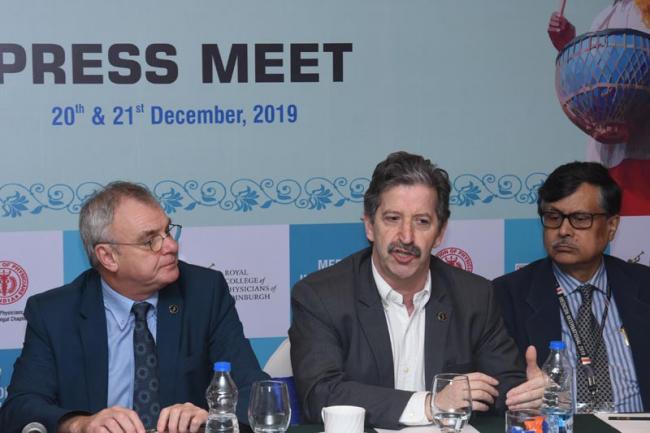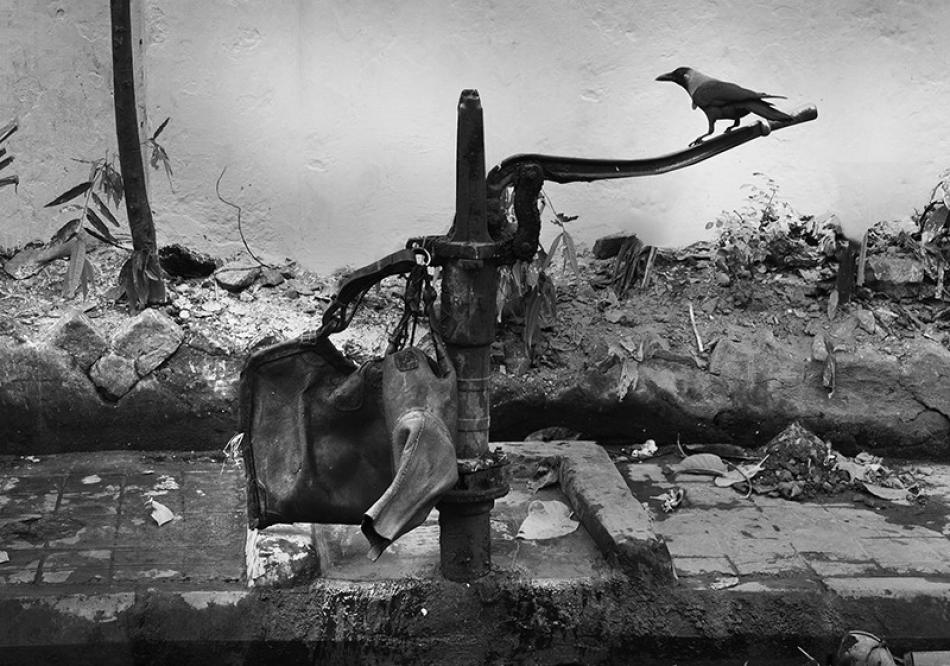NITN | @notintownlive | 24 Dec 2019, 05:20 am

The World Health Organization (WHO) in 2017 declared Sepsis as a global health priority, prompted by the rising worldwide burden of Sepsis, a potentially life-threatening condition caused by the body's response to an infection. It is estimated to affect more than 30 million people worldwide every year, potentially leading to 6 million deaths. IBNS caught up with critical care expert Dr (Prof) Mervyn Singer, Professor of Intensive Care Medicine University College London, UK to discuss the disease and several other issues which include the problem of self-medication. Excerpts:
What is the current scenario of Sepsis globally as well as India?
Globally, much of the epidemiology data comes from developed countries. So, in the case of below middle-income countries, there is very little data available. So, we do not know the true impact in the case of India, other parts of Asia, Africa and so forth. It's imperative that India collects its own epidemiology data on the incidence and mortality rates. So, speaking about Sepsis, I can say that it is like millions of people have infections but only a tiny minority go on to develop organ dysfunction. So, lots of people have an infection but a proportion goes on to develop Sepsis and go to Intensive Care. An important point here is many people who get Sepsis in the UK are elderly, or who are frail or have comorbidities like cancer, dementia, severe heart failure, stoke, whatever where the infection can push them over the edge. So, as we were speaking earlier during the press conference about the end of life. Everyone will die one day. But if your quality of life is very poor or if your quantity of life is not great then the infection might be a gentle way of your dying rather than suffering.
In India, can there be any strategy of collecting data and will it be helping a disease like Sepsis?
In India, there are other problems and pressures like people face lots of trouble with infectious diseases where some need antibiotics while others don't. Hence, it is important to know what causes it and who are affected by it- children, middle-aged people, old people. One should also need to know the outcome of it. You can collect the data in the emergency department when the patient is present. Presumably, the hospitals collect discharge data. Did the patient leave the hospital alive? If the hospital has an intensive care unit they can record how many patients came with sepsis. If a patient dies, they need to find what type of patient died. They need to see did that person had an infection or was he otherwise healthy, or had an underlying serious condition like cancer. I believe greatly that India has its own problem like the resistance to antibiotics. If in India antibiotics use can be controlled then that will be good.
Is self-medication a problem?
Ya, partly. Hospitals give a lot of antibiotics. However, I must add that data in India is lacking. In Western Europe and the US there is a study to show that many people are admitted with suspected sepsis. They do not have infection at all. So in that case antibiotics will not be effective at all. It will only cause more harm. With antibiotics, we see rashes and even kidney problems. There are many other subtle effects as well. Antibiotics are important for the right people who need it. However, in other people, they should be avoided. In India, self-medication is really a problem because you can buy from a store or pharmacy. Moreover, most of the drug you buy, you are not sure about the quality of the drug or even if it is needed or not. Our resistance problems in the UK is tiny in comparison to India. There are many more controls and regulations. In India, I don't know how the government is approaching the problem. If you can control the use of antibiotic then you will be helping the whole country.
In countries where physicians are less in number in comparison to patients, do you think POCT will help?
I feel the Point of Care Testing will be very much useful. At the moment there is no good test. These are coming and we are hopeful that they will come in the next 5-15 years. Then we don't have to send the sample to the labs and wait for two-three days for the results. Instead, we will get it at the bedside. We will get very quick results. There are also clever technologies which are coming up in a positive way. The big challenge will be how much will these tests cost.
Do you think that there is a lack of properly trained critical patient handlers in India and abroad?
India is improving in terms of healthcare resources and availability but there is still room to go. But, this is the same in USA, UK and other countries which also witnesse shortages in patient handlers. So, India is not alone. I have seen in India a big improvement in the last 15 years. So, I feel there is a long way to go. Let's wait to see what the next 15 years bring for the nation.
Do you think that incidents of violence on medical practitioners are disrupting data collection in case of ICU patients?
It is important to try and foster good relationships with the patients and their families. You cannot please all at a time. Sometimes, the patients or the family don't accept what the doctor is telling them and sometimes they get angry and violent. Luckily, in the UK it is not a big problem but it happens from time to time. All you can do is try and defuse the situation. You have to be open and honest with the patient and his family.
Do you think that in a country like India, Sepsis or disease like that will be a big problem in the coming days? How can it be prevented especially by people belonging to the poor family?
Attention to the basics is a necessity now. Steps like good hygiene, sanitization and properly washing the food before cooking it are necessary. These steps are required as in India various kinds of infections are gut-related. A lot of these spread through bad sanitization and hygiene. Clearly, it's a public health issue. The use of clean water, cooking properly and refrigeration is necessary. Education also plays a crucial role here. Moreover, recognizing the signs of becoming ill is important. Clearly, if you feel that you are very much unwell and there are signs like drowsiness, rashes or breathing difficulties then you must realize that it is a sign that something serious is going on. So, rather than self-medication, it is the moment when you need to go for medical attention.
- ‘This Union budget is about building capacity, not chasing short-term consumption’
- AI will replace surgeons, coders — and billions of jobs, warns Sraddhalu Ranade at MCHD-SKC Memorial Lecture
- Religion without servility: Journalist Anshul Chaturvedi on why Vivekananda speaks to believers and atheists alike
- Culturist Sundeep Bhutoria unveils anthology When Gods Don't Matter at Jaipur LitFest 2026
- Kolkata CP urges elderly to stay alert against digital scams at ‘Pronam’ interaction
- Sona Incubations, Salem picks 17 startups for Rs 11 Mn DST investment, grant
- Visva-Bharati University unveils a transformational roadmap under Vice-Chancellor Dr. Probir Kumar Ghosh
- Sona College of Technology hosts Think Salem 2025: To spur startup opportunity from Tier-2 Cities
- ACM India unveils National AI Olympiad 2026 to spot school talent for global AI stage
- Reject Macaulayan education, reclaim Indian values: H M Bangur’s big World Hindu Economic Forum pitch
Gurgaon : Air India, India’s leading global airline, has unveiled a completely refreshed beverage collection, one that brings together some of the world’s most celebrated wines and spirits at 35,000 feet on international routes.
Indian airline major Air India today announced a significant enhancement to its popular Mumbai-Frankfurt route, with the deployment of its newly delivered, first line-fit (or made-for-Air India)
Saudia, the national flag carrier of Saudi Arabia, and Air India, India’s leading global airline, have signed a codeshare agreement that will take effect in February.





